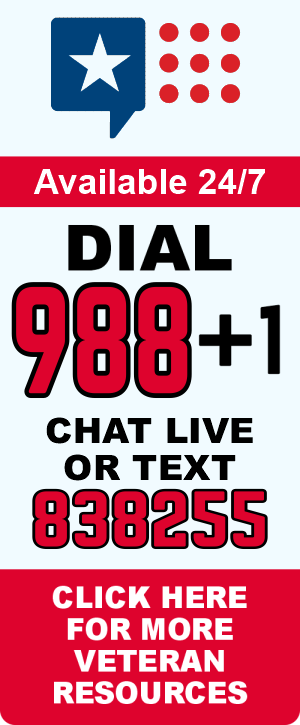June: PTS Awareness Month
This month our Everyday Heroes campaign is focused on Post Traumatic Stress Disorder (PTSD) which is a mental health problem that some people develop after experiencing or witnessing a life-threatening event, like those who have served in combat. While it is normal, and some may say even expected, to have unsettling memories, feelings of being on the edge, or even trouble sleeping after an event like this, if these symptoms persist for more than a few months, there may be something bigger to address.
There is good news though. In recent years, strides have been made that improve both the methods of diagnosis and treatments for PTSD. The best place to start is with some understanding and resources.
What Are The Signs of PTSD?
While each person is different and only a trained professional can diagnose PTSD, there are some signs to look for in yourself or in others. They include*;
- Feeling upset by things that remind you of what happened
- Having nightmares, vivid memories, or flashbacks of the event that make you feel like it’s happening all over again
- Feeling emotionally cut off from others
- Feeling numb or losing interest in things you used to care about
- Feeling constantly on guard
- Feeling irritated or having angry outbursts
- Having difficulty sleeping
- Having trouble concentrating
- Being jumpy or easily startled
How Common is PTSD in the Veteran Community?
While an actual number may be hard to pin down, due to things like undiagnosed or unreported cases, the numbers are high. The VA has done a breakdown that shows the numbers are impacted by the era in which the veteran served.
- Operations Iraqi Freedom (OIF) and Enduring Freedom (OEF): About 11-20 out of every 100 Veterans (or between 11-20%) who served in OIF or OEF have PTSD in a given year.
- Gulf War (Desert Storm): About 12 out of every 100 Gulf War Veterans (or 12%) have PTSD in a given year.
- Vietnam War: About 15 out of every 100 Vietnam Veterans (or 15%) were currently diagnosed with PTSD at the time of the most recent study in the late 1980s, the National Vietnam Veterans Readjustment Study (NVVRS).
How Do I Get Help for Myself?
First off, know that you are not alone. The statistics shared above prove that. There is a community surrounding you and abundant resources* to help.
- PTSD Treatment Programs
All Department of Veterans Affairs Medical Centers provide PTSD treatment, and many locations around the county offer specialized PTSD programs. - Care for Women Veterans
Many VA Medical Centers offer mental health programs specifically for women Veterans. Learn about these services and the role of the Women Veterans Program Manager, the advocate for women’s care at every Medical Center. - Vet Centers
Many Veterans and their families use Vet Centers, often staffed by Veterans, for support. These community-based centers focus on counseling and services to help with the transition from military to civilian life or after military trauma. Learn more about Vet Center programs and ways to connect.
You can also visit PTSD.VA.gov for more resources including help with finding a therapist, counselor, or program for your specific needs.
What Should I Do to Help Someone I Know Who Does or May Have PTSD?
When someone you care about is dealing with PTSD, they aren’t doing it alone. It impacts you as well and in so many ways. Equipping yourself with knowledge and support are essential tools in battling this both for the person suffering and for yourself.
The National Center for PTSD is a free resource. They provide information, support, and more. You can also turn to the following resources*;
- The National Suicide Prevention Lifeline is a 24-hour hotline for anyone in emotional distress: 1-800-273-TALK (8255). There is also an online Lifeline Chat available from 5 pm to 1 am EST, weekdays.
- The Veterans Crisis Line connects Veterans in crisis and their families and friends with VA responders through a 24/7 hotline: 1-800-273-TALK (8255), PRESS 1. There is also a 24/7 online Confidential Veterans Chat or text message support at 838255.
Whether you are a veteran carrying the scars (both seen and unseen) of your service, or someone that cares about a veteran impacted by this devastating condition, you are not alone. There are thousands of us that know what you’re going through and can help to point you in the right direction to find proper help and the light in this darkness. You are strong. Together we are CAL Strong.
* Source: Department of Veterans Affairs National Center for PTSD
